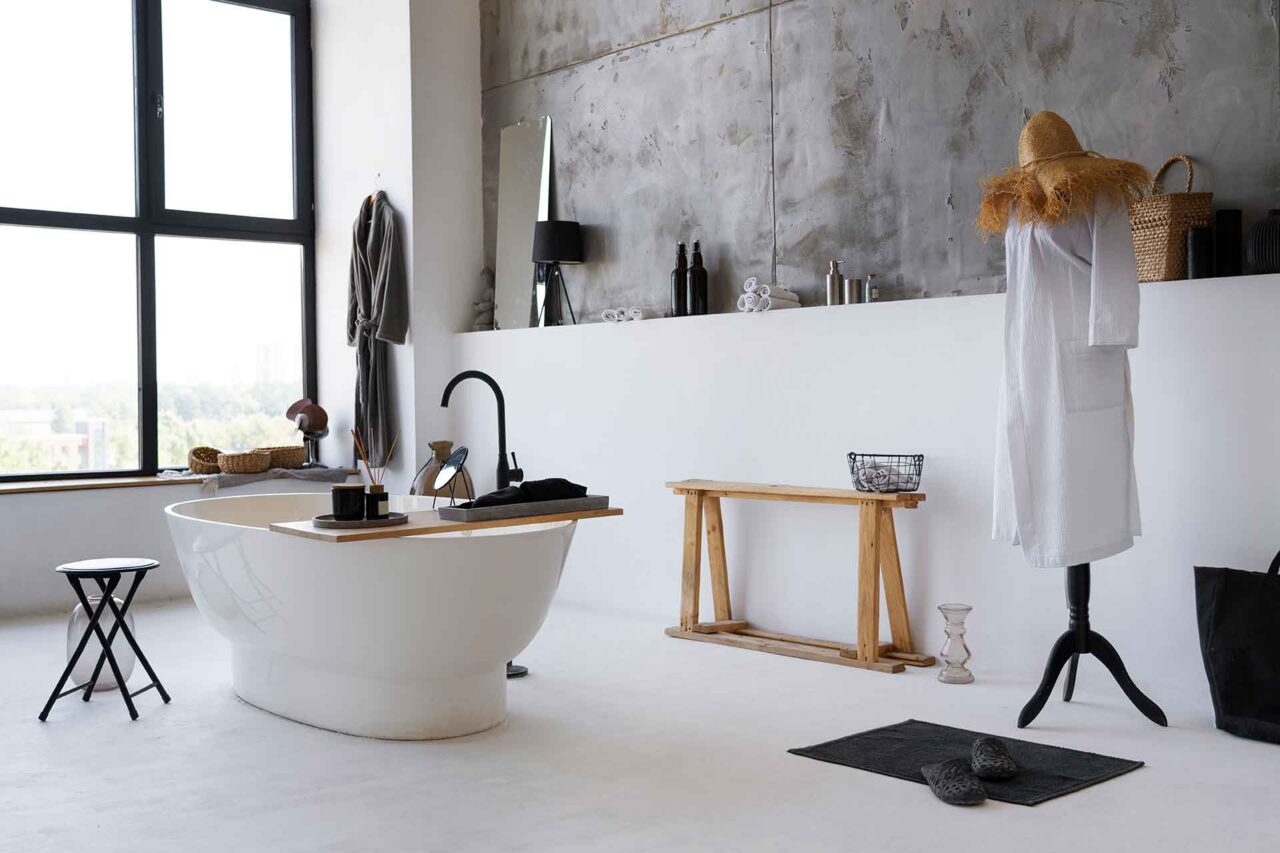Introduction
Bathroom renovations are intricate endeavors that demand meticulous planning, skilled craftsmanship, and a range of trades working in harmony. Despite being one of the smallest rooms in a home, bathrooms are among the most labor-intensive areas to renovate due to the diverse elements they encompass. The bathroom renovation process requires expertise from multiple trades, from plumbing and electrical work to tiling, cabinetry, and more. In this extensive guide, we will delve deep into the role of carpenters in bathroom renovations, shedding light on their varied tasks, skills, and significance in transforming your bathroom into a functional and aesthetically pleasing space.
The Bathroom Renovation Challenge
Before we explore the pivotal role that carpenters play in bathroom renovations, it’s crucial to understand the unique challenges that make renovating bathrooms a complex undertaking:
- Multifaceted Nature: Bathrooms are multifunctional spaces where various elements, such as plumbing, electrical systems, tiles, cabinetry, and fixtures, must coexist seamlessly. Coordinating these components requires meticulous planning and execution.
- Space Constraints: Bathrooms are typically small, compact spaces, which can be challenging, especially when multiple tradespeople need access to the area. This limited space often necessitates careful scheduling and coordination.
- Sequential Work: Many bathroom renovation tasks are sequential, meaning that one trade professional’s work must be completed before the next can commence. This sequential workflow adds complexity and time sensitivity to the project.
- Precision Required: Precision is paramount in bathroom renovations due to the confined space and the need for water-tightness. Any errors in measurements or installations can lead to costly and inconvenient issues down the road.
Roles in Bathroom Renovations
To successfully undertake a bathroom renovation, several skilled tradespeople are typically involved, each contributing their expertise to create a harmonious and functional space. The key roles in bathroom renovations include:
- Plumber: Responsible for installing and maintaining the water supply and drainage systems, ensuring proper functioning of sinks, showers, toilets, and faucets.
- Electrician: Manages the electrical aspects of the bathroom, including lighting, power outlets, switches, and installing electrical fixtures like exhaust fans.
- Cabinet Maker: Designs and constructs custom cabinetry to optimize storage space and enhance the bathroom’s aesthetics.
- Water proofer: Ensures that the bathroom is waterproofed to prevent moisture damage, safeguarding the structural integrity of the space.
- Tiler: Installs tiles on floors, walls, and shower enclosures, creating the desired visual appeal while ensuring water-tightness.
- Glazier: Handles glass-related tasks, such as installing shower screens, mirrors, and glass shelving, adding functionality and style.
- Painter: Provides the finishing touches by painting walls, ceilings, and other surfaces, enhancing the overall aesthetics of the bathroom.
- Carpenter: While traditionally associated with woodworking, carpenters assume a multifaceted role in bathroom renovations, contributing significantly to structural and aesthetic aspects.
The Role of Carpenters in Bathroom Renovations
Carpenters are versatile professionals with a wide range of skills that make them invaluable contributors to the success of bathroom renovation projects. While they are often associated with woodworking and structural tasks, their role extends beyond these stereotypes. Here are some of the critical tasks that carpenters can expertly handle in a bathroom renovation:
- Demolition: Carpenters are well-equipped to demolish existing bathroom framework, walls, and structural elements. This initial step prepares the space for renovation by removing outdated or damaged components.
- Structural Changes: When structural modifications are needed, such as adding shower recesses or altering wall configurations to accommodate new fixtures, carpenters are the experts who can precisely execute these changes.
- Framework Construction: Carpenters are pivotal in constructing and erecting various structural elements, including partition walls, new wall framing, and other framework components necessary for the renovation.
- Windows and Doors: Should your bathroom renovation involve the installation or relocation of windows and doors to improve natural light, ventilation, or accessibility, carpenters are the professionals for the job.
- Flooring: Carpenters are responsible for subfloor replacement and installing new flooring materials, ensuring a stable and aesthetically pleasing foundation for your bathroom.
- Custom Cabinetry: To optimize storage and enhance the bathroom’s aesthetics, carpenters design, build, and install custom cabinetry tailored to your needs and preferences.
- Repairs: Carpenters have the expertise to replace rotten timbers and other structural elements, safeguarding the bathroom’s integrity and longevity.
- Fittings: Carpenters install various bathroom fixtures, including towel holders, towel rails, mirrors, and other wall-mounted accessories, ensuring they are securely attached and aligned with the overall design.
- Cabinets: The installation of new cabinets and their seamless integration with the bathroom’s design and layout is a task well within the purview of carpenters.
- Finishing Touches: Carpenters meticulously frame towel holders and other wall fixtures, ensuring they are securely affixed and aligned with the overall aesthetic.
- Accessory Installation: In addition to structural and framework tasks, carpenters install items such as toilet roll holders, doors, windows, locks, and hooks, ensuring they function seamlessly within the renovated space.
Carpenter Licensing and Expertise
Before enlisting the services of a carpenter for your bathroom renovation project, it is imperative to verify that they hold the correct trade license. These licenses define the specific types of work that carpenters are authorized to perform within your state or region. It is crucial for carpenters to strictly adhere to the scope of work outlined in their license, as exceeding these boundaries can result in fines and penalties.
Conclusion
In conclusion, carpenters are integral to completing bathroom renovation projects. Their role extends beyond traditional woodworking, encompassing various structural, framework, and fitting responsibilities. When planning a bathroom renovation, engaging qualified carpenters with the necessary licenses and expertise is essential to ensure the project’s success. Their craftsmanship, attention to detail, and versatility significantly impact the quality and functionality of the newly renovated bathroom. If you are considering a bathroom renovation, consult with experienced carpenters to discuss your project’s specific requirements and expectations, ensuring a successful and transformative outcome that enhances your space’s beauty and functionality.
Transform your home effortlessly with FloorPup! Discover our extensive range of hardwood flooring, receive tips from expert floor care and maintenance professionals. Our team includes professional floor fitters, skilled driveway pavers, and dependable carpet repair specialists, ensuring top-notch results. Learn more about our dedication to quality on our About Us page. Visit FloorPup and start enhancing your living space today!
FAQS
Do carpenters lay tiles?
Have you ever wondered if carpenters can tackle tile installation? While carpenters primarily work with wood and structural elements, some may have the skills to lay tiles. However, hiring a professional tile installer specializing in this specific trade for precision and expertise is often best, ensuring a flawless and durable result.
What is the order for installing a bathroom?
When installing a bathroom, the typical order involves starting with rough plumbing, then handling electrical work, followed by drywall and flooring installation. Next, fixtures like the bathtub, shower, toilet, and sink are installed, and the process concludes with paint, trim, and accessory additions for a fully functional bathroom.
What is the duration required to install a bathroom?
The duration required to add a bathroom to a home can vary widely based on project complexity, available space, and local permitting processes. A simple bathroom addition might take a few weeks to a few months, while more intricate projects could extend to several months. For a precise timeline, it’s best to consult a contractor who can assess your circumstances.


